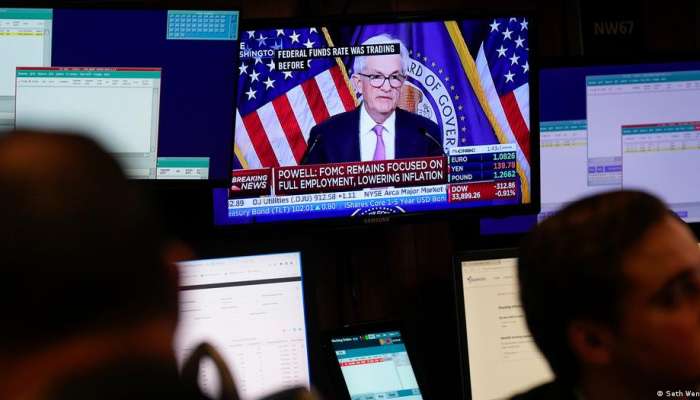
Washington: The US Federal Reserve voted Wednesday to pause its recent series of interest rate increases, but warned that inflation remained "elevated" and implied that rates might rise again this year.
"It allows the economy a little more time to adapt as we make our decisions going forward," Fed chair Jerome Powell said in a press conference after the announcement.
The Fed's benchmark lending rates will therefore remain between 5.0% and 5.25%, following 10 consecutive increases, in a bid to bring inflation accelerated by Russia's invasion of Ukraine under control.
Although the benchmark rates, which the Fed charges to commercial lenders for borrowing funds, are different to, and generally lower than, those paid by ordinary consumers on loans or mortgages, they tend to impact those rates as well.
'Some further rate increases will be appropriate,' Powell says
The Fed had already made clear at its last rates announcement that this course of action was likely in June.
European markets had therefore been buoyant on Wednesday, with Germany's DAX hitting a new record high at one point in trading.
In the US, where the bell had not rung calling trade to a halt when the Fed acted, markets briefly dipped in response to the Fed's warning that more rate increases were possible in 2023, something Powell also said later.
"Looking ahead, nearly all committee participants view it as likely that some further rate increases will be appropriate this year to bring inflation down to 2% over time," Powell said.
Officials now expect the fed funds rate to top out at 5.6% this year, implying two more 0.25% increases in 2023, up from the 5.1% estimate in the last set of forecasts released in March.
The Fed also released an updated economic forecast Wednesday, lifting its 2023 GDP growth projections for the US to 1%, from 0.4% in March.
Eurozone's ECB next to move
The Fed reacted more quickly and more sharply than the European Central Bank (ECB) in 2022 as inflation began to spike, fueled first by the COVID pandemic and then by the pressures on core goods like food and fuel caused by Russia's invasion of Ukraine.
Its rates were first moved several months before the eurozone's ECB acted, and they currently sit more than 1% higher than the ECB's.
The European Central Bank's rate decision is up next on Thursday, and markets anticipate a 25 basis-point hike and another in July before a pause for the rest of the year, which would still leave the European rate slightly lower than that in the US.
However, both central banks were also bringing to an end a 15-year period of almost uninterrupted — and historically unprecedented — rates near 0% in the aftermath of the 2008 financial crash. At that time they were trying and failing to encourage inflation of around 2% as the economy flat-lined and recovery faltered.
Raising interest is seen a way for central banks to try to stifle inflation, by discouraging borrowing from consumers and businesses alike.